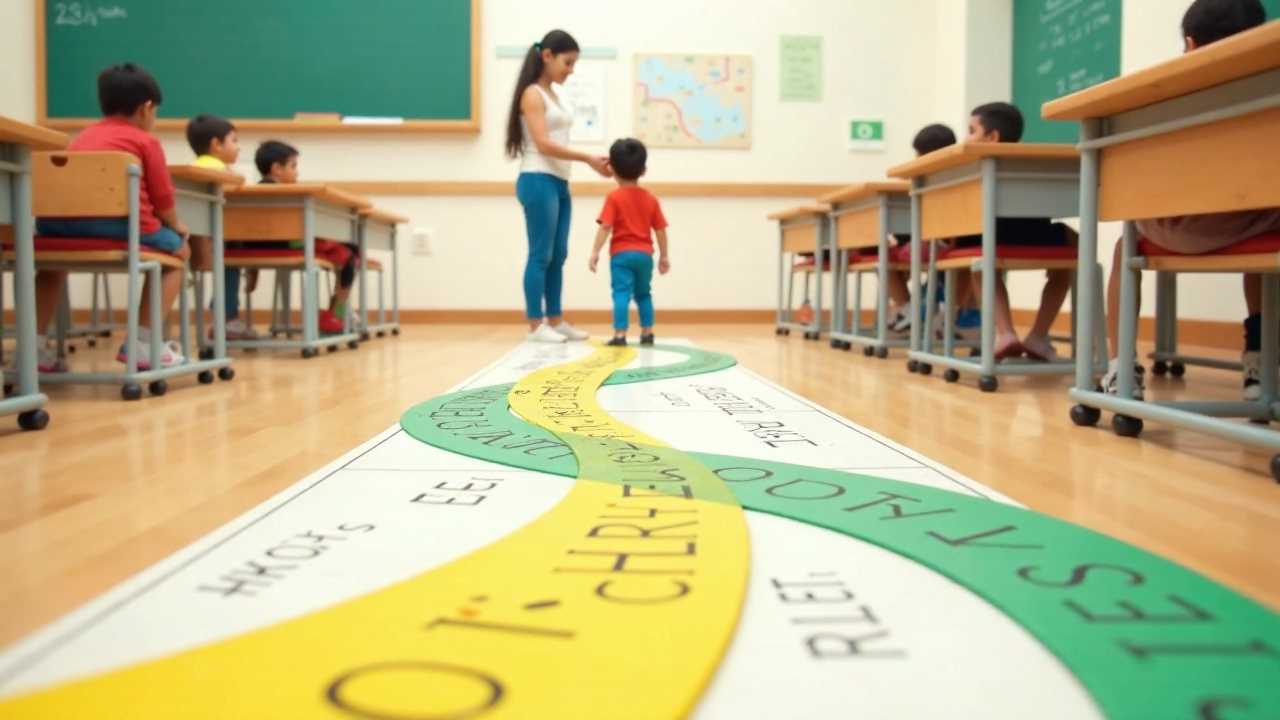
The Foundation of Character Education
Character education serves as a fundamental pillar in elementary education, shaping the minds and hearts of young learners. By instilling core values such as respect, responsibility, empathy, collaboration, and integrity, we prepare students not only for academic success but also for meaningful participation in society. This holistic approach to education emphasizes the development of the whole child, ensuring that they grow into compassionate and responsible adults.
Understanding Values in Character Education
At the heart of character education lies the cultivation of values. These guiding principles influence how students interact with one another and the world around them. Values such as honesty, kindness, and fairness are integral to creating a positive classroom environment. When students learn to prioritize these values, they become more empathetic and understanding, fostering a sense of community within the classroom.
Incorporating values into daily lessons can be achieved through various methods, including storytelling, role-playing, and group discussions. These activities encourage students to reflect on their actions and the impact they have on others, reinforcing the importance of treating everyone with respect and dignity.
The Role of Empathy in Education
Empathy is a crucial component of character education, allowing students to understand and share the feelings of others. By nurturing empathy, we help students develop strong interpersonal skills that are essential for collaboration and teamwork. Activities that promote empathy, such as peer mentoring and community service projects, provide students with opportunities to connect with diverse perspectives and experiences.
Teaching empathy also involves guiding students to recognize their own emotions and how these feelings can influence their interactions with others. By fostering an environment where students feel safe to express their emotions, we encourage them to be more attuned to the feelings of their peers.
Responsibility: A Key Element of Character Education
Responsibility is another vital aspect of character education. It empowers students to take ownership of their actions and decisions. In the classroom, we can instill a sense of responsibility by assigning roles and tasks that require students to contribute to their learning environment. For example, classroom jobs such as line leader or materials manager teach students the importance of accountability and teamwork.
Encouraging students to set personal goals and reflect on their progress also fosters a sense of responsibility. When students understand that their choices have consequences, they are more likely to make thoughtful decisions that align with their values.
Respect: Building a Positive Classroom Culture
Respect is foundational to a successful learning environment. By promoting respect among students, we create a culture where everyone feels valued and heard. This can be achieved through establishing classroom norms that emphasize the importance of listening to others, valuing diverse opinions, and treating everyone with kindness.
Teachers play a crucial role in modeling respect. By demonstrating respectful behavior in their interactions with students and colleagues, educators set a powerful example for young learners. Encouraging open dialogue and addressing conflicts constructively also reinforces the importance of respect in the classroom.
Collaboration: Learning Together
Collaboration is an essential skill that students must develop to succeed in both academic and social settings. Character education promotes collaboration by encouraging students to work together on projects, share ideas, and support one another in their learning journeys. Group activities that require teamwork help students learn how to communicate effectively, resolve conflicts, and appreciate the strengths of their peers.
Incorporating collaboration into the curriculum can take many forms, from group presentations to cooperative learning exercises. These experiences not only enhance academic achievement but also foster a sense of community and belonging among students.
Integrity: The Cornerstone of Character Education
Integrity is the cornerstone of character education, encompassing honesty, accountability, and ethical behavior. Teaching students about integrity involves helping them understand the importance of making choices that align with their values, even when faced with challenges or peer pressure.
Promoting integrity in the classroom can be achieved through discussions about ethical dilemmas, encouraging students to reflect on their values, and recognizing acts of honesty and fairness. When students learn to prioritize integrity, they become more trustworthy individuals who contribute positively to their communities.
Implementing Character Education in Elementary Schools
To effectively implement character education in elementary schools, educators must integrate these principles into the curriculum and daily routines. This can be achieved through:
1. Curriculum Integration: Incorporating character education into subjects such as language arts, social studies, and science allows students to explore values, empathy, responsibility, respect, collaboration, and integrity in various contexts.
2. Professional Development: Providing teachers with training and resources on character education equips them with the tools necessary to foster a positive classroom environment.
3. Family and Community Involvement: Engaging families and community members in character education initiatives reinforces the importance of these principles outside the classroom. Workshops, events, and volunteer opportunities can strengthen the connection between school and home.
4. Assessment and Reflection: Regularly assessing students' understanding of character education concepts and encouraging self-reflection helps reinforce the importance of these principles in their lives.
Conclusion
Incorporating character education into elementary education is vital for nurturing well-rounded individuals who possess strong values, empathy, responsibility, respect, collaboration, and integrity. By prioritizing character development alongside academic achievement, we empower future generations to become compassionate and responsible citizens. Through intentional teaching practices and a commitment to fostering a positive classroom culture, we can create an environment where character education thrives, ultimately benefiting students and society as a whole.
 Careers in EducationElementary EducationHigh School EducationEducational TechnologyTeaching StrategiesSpecial EducationPrivacy PolicyTerms And Conditions
Careers in EducationElementary EducationHigh School EducationEducational TechnologyTeaching StrategiesSpecial EducationPrivacy PolicyTerms And Conditions
